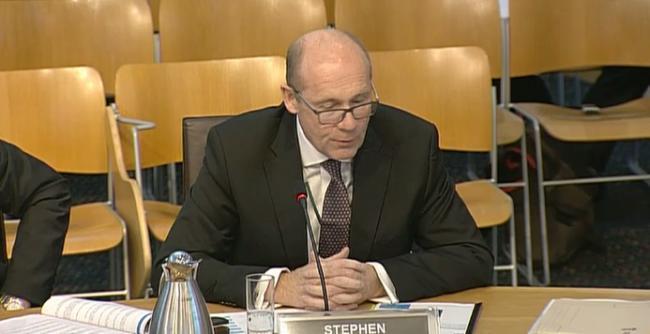
Last week the Scottish government announced there would be no public inquiry into undercover policing north of the border. This followed the publication of a report by HM Inspectorate of Constabulary in Scotland (HMICS) which the justice secretary Michael Matheson had sat on for three months, despite him commissioning the review.
The Undercover Policing Public Inquiry set up by the then home secretary Theresa May in 2015 is restricted to England and Wales, despite clear evidence that most spycops had been active in Scotland. The Scottish government then came under pressure to conduct its own inquiry but instead set up the review instead. This has been dogged by controversy from the outset.
Victims of spying boycotted it because it couldn’t hope to be impartial. Last year 18 of them sent an open letter to HMICS condemning the choice of a police body to investigate the police and the review’s remit to only examine the last 18 years, despite the Special Demonstrations Squad having been active since 1968. Most of those who objected are core participants at the London-based public inquiry and they included several women who were deceived into relationships by undercover officers.
Since there have been fresh concerns about the review’s impartiality following the disclosure that one of the panel, retired detective Stephen Whitelock, had oversight of covert policing at the Scottish Crime and Drug Enforcement Agency. HMICS chief Derek Penman he would take the “lead” on the probe due to Whitelock’s past but the Sunday Herald revealed on 11 February that Whitelock carried out some interviews on his own and helped brief the police on the its findings.
Unsurprisingly the review found there was no need for a public inquiry. Matheson said: “Based on the information that HMICS has been able to get access to and which is available to it as part of the documentation process, I do not believe that that evidence is sufficient to justify establishing a public inquiry at this stage.” The announcement was branded a whitewash by those who had been targeted by undercover operations.
However, despite confirming the notorious spycop Mark Kennedy had visited Scotland at least 17 times, the watchdog chose not to examine Kennedy’s activities while north of the border. Penman stated: “We didn’t consider it appropriate or necessary to go in and look at the actual detail behind that. Our terms of reference was very much about getting some high-level figures [on] the extent and scale.”
In fact the report devotes just four of its 62 pages to police infiltration of political/protest groups. According to the Sunday Herald, the controversial practice a is given a largely clean bill of health as no evidence was discovered that “advanced undercover officers” from Police Scotland had infiltrated social justice campaigns. But you don’t find evidence unless you look in the right places and HMICS admits the records it examined are “incomplete”.
Matheson gave his verdict on the report before the revelation of Whitelock’s role was revealed. The latter is the former deputy general director of the Scottish Crime and Drug Enforcement Agency, with managerial responsibility for special operations, which covered undercover policing.
According to one lawyer who has advised victims of spying, said Whitelock’s presence on the review was “alarming”. Paul Heron, from the Public Interest Law Unit at Lambeth Law Centre, said: “This further questions the ‘clean bill of health’ given by the Justice Minister in his Parliamentary statement last week. At best the report only scratches the surface on undercover political policing in Scotland, at worst it can only be described as a whitewash.”
Tilly Gibson, one of those who was spied on in Scotland, and who has as already brought the Scottish and UK governments to court over the exclusion of Scotland from the inquiry, said: “I’m totally outraged. This is a case of police marking their own homework and is clearly a conflict of interest. Why is it so hard to get justice in Scotland?”
When the Sunday Herald asked the HMICS if Whitelock carried out most of the interviews, it was told to “submit a freedom of information request.” A spokesperson from the body said: “Measures were in place to protect the overall integrity of the review and ensure that all members of the team were deployed appropriately into specific areas where there could be no conflict of interest.”
On its website the Campaign Opposing Police Surveillance described justice secretary Matheson’s decision as:
“A spineless abdication of responsibility and an affront to justice. It is a brazen, shameless U-turn that serves to protect yesterday’s abusers and thereby embolden tomorrow’s. He is choosing to cover up the counter-democratic undermining of political campaigns in Scotland…He has decided not to let Scottish people know what was done to them, whilst the English are entitled to answers. The fight is far from over.”
http://campaignopposingpolicesurveillance.com/2018/02/07/scotland-refuses-spycops-inquiry/
Leave a Reply